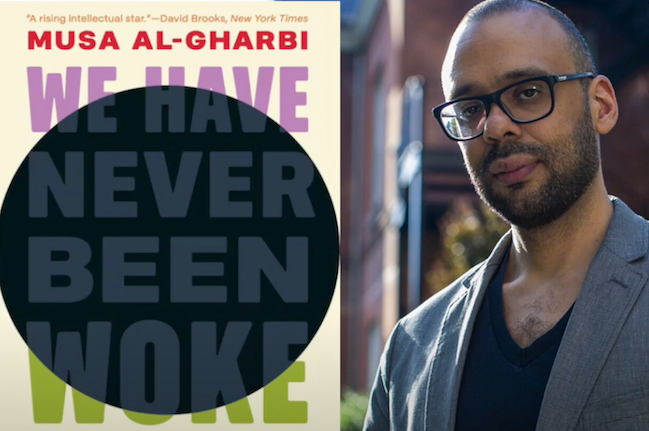As Bob Dylan recognised, one-time Byrds rock star Gene Clark composed singular tunes. Clark’s music endures, his White Light album being a creative high.
American singer-songwriter Gene Clark toured Australia just once. In 1978, with McGuinn, Clark & Hillman, three of the five original Byrds. That was 13 years after Clark’s first Byrds stardom and 13 years before his untimely death. In the 21st Century, fans, musicians and critics keep his music alive.
His 1974 No Other album fared poorly upon first release. With its accumulating reputation, an indie-rock “supergroup” toured the songs in 2014. The New York Times covered the occasion. In 2019, even the staid The Economist magazine saluted said album’s deluxe CD reissue. So did Rolling Stone music magazine — while acknowledging the “overproduction” issues.
For this fan, No Other is eclipsed by the heady bluegrass of Fantastic Expedition of Dillard & Clark (October 1968) and the contemplative songscape in White Light (August 1971). Nearly all their tracks are quality Clark originals.
White Light, too, has its following. The initial LP release struggled in the USA but succeeded in the Netherlands. Right up to 2019, there is a string of American, European and Japanese reissues. These now include retro LPs for audiophiles. Plus, there are downloads.
The album features an ace interpretation of 'Tears Of Rage', composed four years previous by Bob Dylan, with Richard Manuel of The Band.
Clark’s great songs, so I claim, compare readily to Dylan or Lennon-McCartney. If he lacks their sheer numbers of first-rank compositions, he still has dozens. Yet the Songwriters Hall of Fame still eludes him. As compared with Nobel Laureate Dylan, you won’t find many academics presenting “Clark 101” courses.
Life and fate stymied him. He was the most impressive Byrds vocalist. Rich royalties confirmed him as their leading composer. But his innovative solo albums sold thinly. His marriage foundered. After the cost overruns of No Other, music corporations shied away from him.
Misspent royalties, derived from an appreciative 1989 Clark cover version by Tom Petty, possibly hastened his demise. A vengeful mourner messed with his funeral. There was a surprise twist. A posthumous (2001) guitar-and-voice demo issue found him in haunting form, very late in life.
Clark sang:
"If the world we know should end without warning."
What a fine studio album these final songs would have made. Clark’s compositions were reaching into the realms of American folklore. Reminiscent of folk legend Woody Guthrie. A Clark tour-musician has recalled him as genius and insanity combined. I prefer the term “autodidact” or self-taught whiz — for he wasn’t overtly a literary guy.
As early as 1965, his unusual composing signature was evident. Especially on ‘Set You Free This Time', a minor Byrds hit at the time. Its marching prepositions and propositions subvert the conventional 1960s “break-up” song.
Their analysis continues to attract covers:
“You were sure to make a fool of me ‘cause there was nothing there that you could see that could go beyond your mind.”
Instrumentally, the original Byrds players were no slouches. Neither was the White Light team. Clark’s friend Jesse Ed Davis, who also died young, took on production and electric guitar. Ben Sidran, already soaring as a jazzman and sideman, played piano.
Their introspective rock music suits Clark’s compulsively poetic lyrics, where love songs merge with instinctual philosophies.
A standout among the love songs is 'Because Of You' with Clark on acoustic guitar:
“And think of reasons why this warmth is here to stay,
Then the dark clouds break away and a rainbow comes on through.
The sun I see only shines for me because of you.”
That kind of meteorology is familiar terrain for songwriters. Yet Clark invests his sun-and-rain images with genuine feeling and memorability. Aided by the sidewoman here, percussionist-for-the-stars Bobbye Hall.
Backlit by a fading “morning star” and propelled by Davis on electric guitar, another affecting love-tribute is 'One In A Hundred':
“Don’t you come down you know you’re the one,
Looking at tomorrow let your troubles fade and fly into the sun.”
From a different head-space comes 'The Virgin'. A psychological (yet singable) profile of flower power innocence.
Clark does his trademark harmonica fills and sings:
“Now her teachers and philosophers and the poet’s silver throat
Are the vessels which on wisdom’s karmic ocean she will float.
Was this her revolution just a child in love’s crusade
With the question in her innocence through the lies her eyes betrayed?”
Karmic? Sure, it’s what Clark hit upon. And it works.
When the original Byrds weren’t singing Clark tunes, they often covered Dylan. At the same time, Dylan championed Clark’s one-off talent.
Here, the title track and '1975' are unmistakably Clark — in his “cosmic” or mysterious vein. The title track reads like a riff on the age-old quest for enlightenment.
Visualised in some storm-wracked “village” or “estate” — where
"electric lines of force ring around the humble lives of the souls that hear the master saying, soon..."
Caught betwixt and between are the “gentle souls” of '1975'. Even if they should travel
"across the bridge, across the river, where we’ve never been before..."
Reportedly, 'For A Spanish Guitar' is one Clark song that Dylan would have been proud to write himself.
I see it as a companion piece for 'Mr Tambourine Man’, the acoustic epic that Dylan released, just as he was going electric. The Byrds quickly rebadged the song as a one-verse folk-rock worldwide hit. Restoring other verses, an older Clark reinterpreted it sweetly.
Sang Dylan of his tambourine man:
"Cast your dancing spell my way... I’ll come followin’ you."
With Clark, it’s as if the shifting weather itself compels him to follow the muse:
“And the workings of sunshine and rain and the visions they paint that remain,
Pulsate from my soul through my brain and a Spanish guitar.”
Stephen Saunders is a former public servant, consultant and Canberra Times reviewer.
Related Articles
 This work is licensed under a Creative Commons Attribution-NonCommercial-NoDerivs 3.0 Australia License
This work is licensed under a Creative Commons Attribution-NonCommercial-NoDerivs 3.0 Australia License
Support independent journalism Subscribe to IA.












